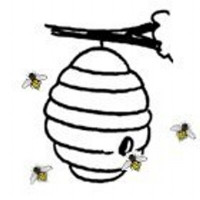Fermentation History
Ambient: {{ stats.ambient | number:0 }} °F
OG: {{ stats.ogGravity | number:3 }}
Attenuation: {{ stats.attenuation | number:2 }}%
Calories: {{ stats.calories | number:1 }} / 12oz
Carbs: {{ stats.carbs | number:1 }} g / 12oz
Readings: {{ readingsCount | number }}
{{ formatHeaderDate(dates.navStart) | date:'mediumDate' }} to {{ formatHeaderDate(dates.navEnd) | date:'mediumDate' }}
Last Updated: {{ stats.lastupdated.ago }} from {{ stats.lastupdated.source }}
Hops
|
Amount
|
Variety
|
Cost
|
Type
|
AA
|
Use
|
Time
|
IBU
|
Bill %
|
|
1 oz |
BSG - East Kent Goldings1 oz East Kent Goldings Hops |
|
Pellet |
5.3 |
Boil
|
60 min |
19.38 |
50% |
|
1 oz |
BSG - East Kent Goldings1 oz East Kent Goldings Hops |
|
Pellet |
5.3 |
Boil
|
10 min |
4.21 |
50% |
|
2 oz
/ $ 0.00
|
Mash Guidelines
|
Amount
|
Description
|
Type
|
Start Temp
|
Target Temp
|
Time
|
|
5.5 gal |
|
Strike |
168 °F |
154 °F |
60 min |
|
2.5 gal |
|
Sparge |
168 °F |
168 °F |
15 min |
Starting Mash Thickness:
1 qt/lb
Starting Grain Temp:
65 °F |
Target Water Profile
Edinburgh (Scottish Ale, Malty Ale)
Notes
2024-02-11 People still remember this beer a few years later. The boil down on the stove of a gallon of wort makes a huge difference. Gives it a huge amount of flavor, be careful not to burn it. (BrewDay Edit: boiled down in a large pan for about 40 minutes, got it to about 220ºF when it looked like a thick pancake syrup and had darkened considerably) Because it wasn't too far, it redissolved and didn't burn to the bottom of the kettle, lots of stirring.
I'm lazy this time and grabbed 3 packs of OYL-015 Scottish Ale instead of doing a starter with WLP-028. Going to triple the amount of yeast nutrients and oxygenate on setting 1 (Blichmann regulator) for a few minutes to get it good.
Also adding 5 g ascorbate to mash for oxidation protection (gosh this doesn't make sense with oxygenation, but it seems to work in NEIPA so why not everywhere too?)
Also, also, the original had a "light and malty" water profile so I switched it up to Edinburgh. Not paying attention to the carbonate, but needed slaked lime to get the calcium up, which means I need more acid to balance it. Aiming for a mash pH of ~5.4.
Created a 2 L 1.060 Pils DME starter (1L in each 1 gallon jugs) and applied the Shaken Not Stirred approach.
https://www.experimentalbrew.com/blogs/saccharomyces/shaken-not-stirred-stir-plate-myth-buster
Starter:
342 g Briess Pils DME
2L distilled water
one ball of CaCl2
pinch of Ca2SO4
pinch of NaCl (table)
pinch of yeast nutrient
1 Pack of WLP028
7 pellets of EKG
Boiled then cooled to 70ºF with ice water bath in sink
~18 hours @ room temp (~60-70ºF)
Post mash, pull 1 gallon of liquid and boil that down in a shallow frying pan while you boil the main pot. This will create massive MRPs and flavor.

Last Updated and Sharing

- Public: Yup, Shared
- Last Updated: 2024-02-11 18:32 UTC
For quick copying and pasting to a text based forum or email.
Click the Download as HTML file button below.
Recipe costs can be adjusted by changing the batch size. They won't be saved but will give you an idea of costs if your final yield was different.
|
Cost $ |
Cost % |
| Fermentables |
$ |
|
Steeping Grains
(Extract Only) |
$ |
|
| Hops |
$ |
|
| Yeast |
$ |
|
| Other |
$ |
|
| Cost Per Barrel |
$ 0.00 |
|
| Cost Per Pint |
$ 0.00 |
|
| Total Cost |
$ 0.00 |
|
Discussion about this recipe:





